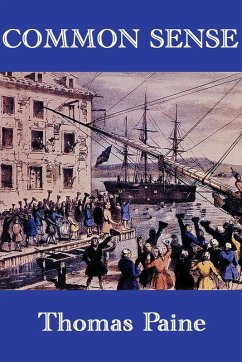In January of 1776, Thomas Paine published Common Sense; the book inflamed its readers and ignited the American Revolution. In truth the fires of dissent were already smoldering, but Paine's impassioned writing gave focus to the many disparate voices and united a country. One cannot over estimate the importance of this book in shaping the destiny of United States of America, as it was here that our constitutional form of government was first suggested.
Dieser Download kann aus rechtlichen Gründen nur mit Rechnungsadresse in A, D ausgeliefert werden.









